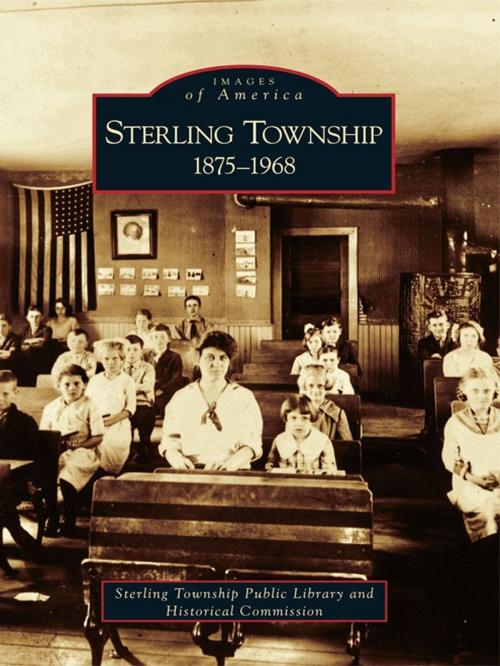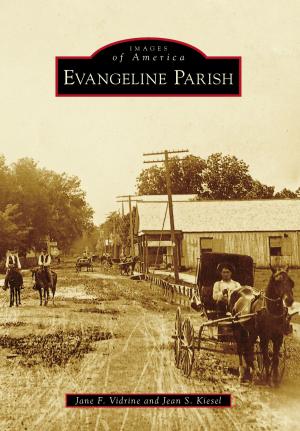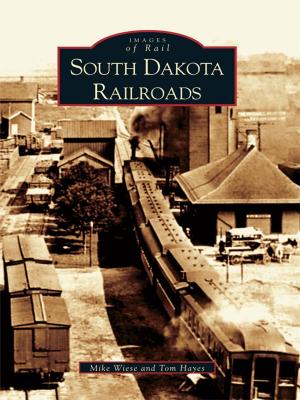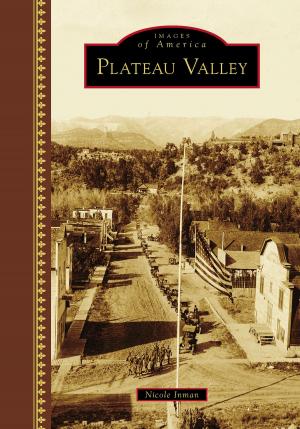| Author: | Sterling Township Public Library and Historical Commision | ISBN: | 9781439632802 |
| Publisher: | Arcadia Publishing Inc. | Publication: | October 31, 2005 |
| Imprint: | Arcadia Publishing | Language: | English |
| Author: | Sterling Township Public Library and Historical Commision |
| ISBN: | 9781439632802 |
| Publisher: | Arcadia Publishing Inc. |
| Publication: | October 31, 2005 |
| Imprint: | Arcadia Publishing |
| Language: | English |
Sterling Township, located about 18 miles northeast of Detroit, was first settled after the Erie Canal was opened. The rich soil, relatively flat land, and the vital Clinton River attracted pioneer and immigrant families who arrived to establish farmsteads. The first influx of immigrants came mainly from the British Isles, and by the 1870s, German
families had flocked to the area, raising dairy cattle and
establishing farms. Belgians, arriving in the early 1900s,
developed truck farming�growing fruits and vegetables
to sell every week at the farmers� market in Detroit. Farm
culture prevailed until the 1950s, when large industrial
plants began moving in, bringing with them workers and
a need for housing and city services. Sterling Township
became the city of Sterling Heights in 1968, and this
collection of photographs will showcase the families and
the way of life in the early days of this community, a
historic community that is now the fourth largest city in Michigan.
families had flocked to the area, raising dairy cattle and
establishing farms. Belgians, arriving in the early 1900s,
developed truck farming�growing fruits and vegetables
to sell every week at the farmers� market in Detroit. Farm
culture prevailed until the 1950s, when large industrial
plants began moving in, bringing with them workers and
a need for housing and city services. Sterling Township
became the city of Sterling Heights in 1968, and this
collection of photographs will showcase the families and
the way of life in the early days of this community, a
historic community that is now the fourth largest city in Michigan.
Sterling Township, located about 18 miles northeast of Detroit, was first settled after the Erie Canal was opened. The rich soil, relatively flat land, and the vital Clinton River attracted pioneer and immigrant families who arrived to establish farmsteads. The first influx of immigrants came mainly from the British Isles, and by the 1870s, German
families had flocked to the area, raising dairy cattle and
establishing farms. Belgians, arriving in the early 1900s,
developed truck farming�growing fruits and vegetables
to sell every week at the farmers� market in Detroit. Farm
culture prevailed until the 1950s, when large industrial
plants began moving in, bringing with them workers and
a need for housing and city services. Sterling Township
became the city of Sterling Heights in 1968, and this
collection of photographs will showcase the families and
the way of life in the early days of this community, a
historic community that is now the fourth largest city in Michigan.
families had flocked to the area, raising dairy cattle and
establishing farms. Belgians, arriving in the early 1900s,
developed truck farming�growing fruits and vegetables
to sell every week at the farmers� market in Detroit. Farm
culture prevailed until the 1950s, when large industrial
plants began moving in, bringing with them workers and
a need for housing and city services. Sterling Township
became the city of Sterling Heights in 1968, and this
collection of photographs will showcase the families and
the way of life in the early days of this community, a
historic community that is now the fourth largest city in Michigan.















